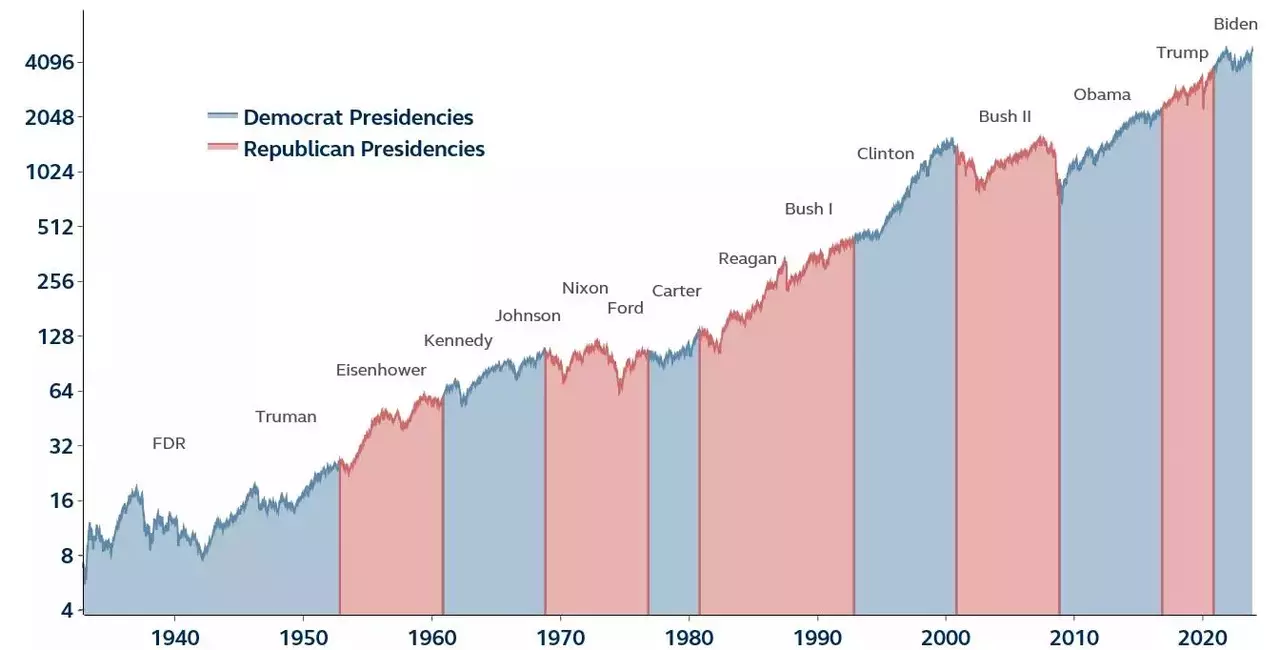gguy44
The upcoming U.S. presidential election is going to dominate the news cycle over the coming months. While these short-term headlines have the power to create market volatility, over the longer term, markets have historically been indifferent to who occupies the White House.
The market has performed strongly under both parties, and has proven to instead be more influenced by the broader business cycle.
The stock market and presidencies
S&P 500 Price Index, 1930–2023
Source: Clearnomics, Standard & Poor’s. Data as of December 31, 2023.
The presidential election season is heating up, and the results of Super Tuesday have set the stage for a rematch between Joe Biden and Donald Trump.
In this polarized political environment, many investors may be concerned about the impact of elections and politics on the stock market and economy.
While a lot can happen between now and election day on November 5, history suggests that markets are primarily driven by the broader business cycle.
In fact, markets have historically performed well under both parties. From 2008 through 2020 across both the Obama and Trump administrations, the S&P 500 generated a total return of 236%… despite the vast perceived differences between the parties and the increasing polarization of Washington politics.
This market outperformance also occurred despite many budget battles, fiscal cliffs, debt ceiling crises, U.S. credit rating downgrades, etc., not to mention the global financial crisis, the pandemic, and more.
Although political policies can have important impacts on specific industries, potentially affecting the broader economy, making decisions solely based on who is in the Oval Office would historically have been a mistake.
Most investors will find it more prudent to focus on fundamentals rather than day-to-day election coverage.
Paying careful consideration to portfolio allocations across sectors, asset classes, and individual securities is likely to have the greatest effect on portfolio performance as the election approaches.
Editor’s Note: The summary bullets for this article were chosen by Seeking Alpha editors.




